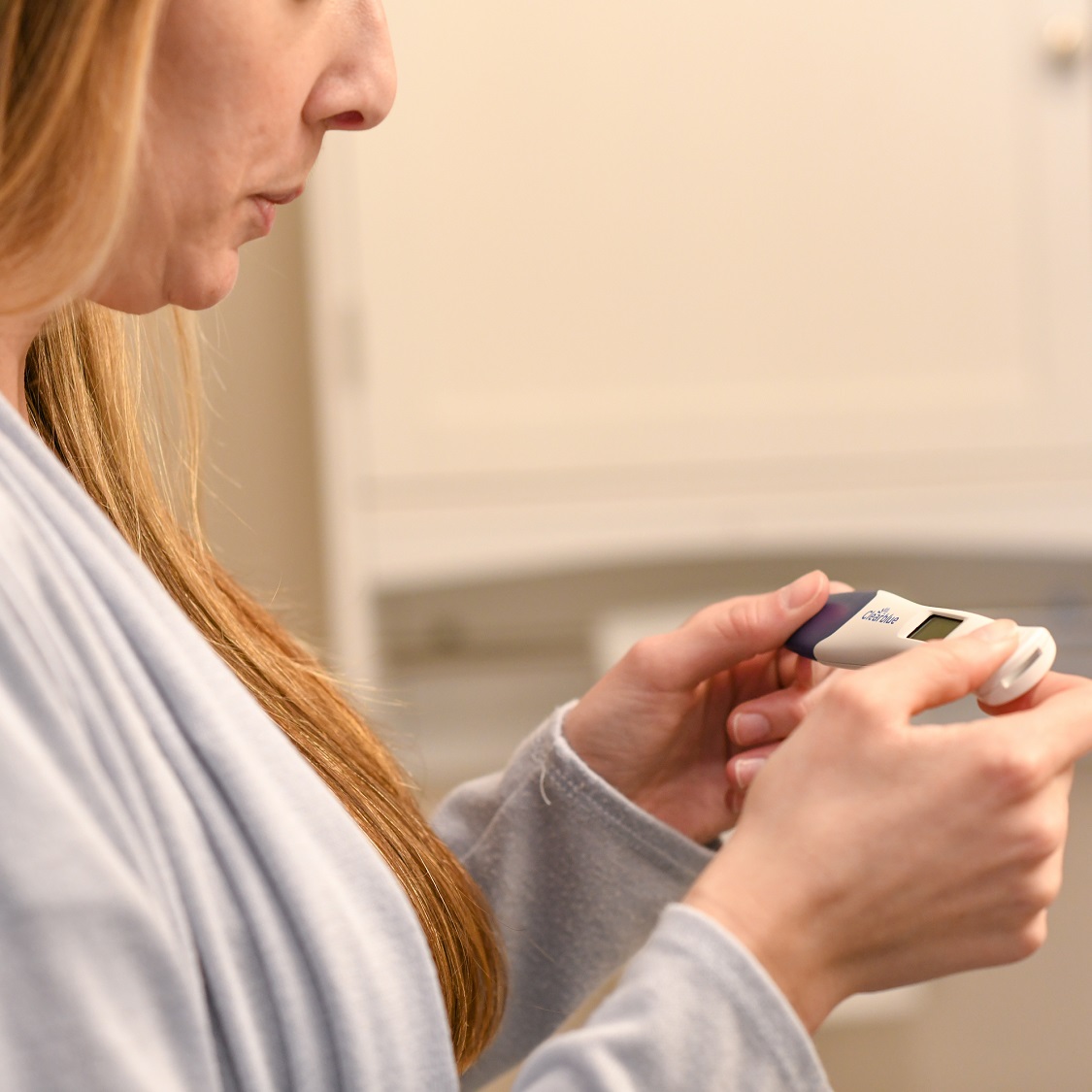Men's Infertility Diagnosis and Treatment
Our urologists will conduct a thorough exam using the latest tools and techniques to help determine the cause of your infertility.
Your exam will include a semen analysis to measure your sperm count and assess the quality of your sperm. You also may be asked to answer health questions or provide blood and urine samples. Reasons for infertility may include:
- Varicocele, which is an enlargement of veins within your scrotum that can affect sperm production and quality
- Obstructed vas deferens, which prevents sperm from being ejaculated properly
- Nonobstructive azoospermia, which is a lack of sperm production in the ejaculate
What Causes Infertility in Men?
Male infertility accounts for up to 50 percent of cases in which couples are unable to get pregnant within a year of having unprotected sex. Most male infertility is caused by low sperm count (oligospermia) or no sperm count (azoospermia). Our specialists provide expert treatment for conditions that may contribute to low or no sperm count, including:
- Sperm blockage due to an obstructed vas deferens.
- Lack of sperm production in the ejaculate, called nonobstructive azoospermia.
- Enlarged veins in the scrotum, called varicocele.
- Health problems such as diabetes, infections or hormone imbalances which affect sperm production.
How is Male Infertility Diagnosed?
Our urologist will conduct a thorough exam using the latest techniques to help determine the cause of your infertility.
- Semen Analysis: Assessing your sperm count and quality of your sperm.
- Health History and Exam: Identifying any underlying health issues contributing to infertility.
- Blood Tests: Checking for possible causes related to pituitary function, hormone level or genetic abnormality.
- Imaging: Ultrasound may be recommended to examine the structure of the scrotum and testes.
Treatments for Male Infertility
Once the cause of male infertility is identified, your urologist partners with you to develop a customized treatment plan. We may recommend medication or microsurgery. Our goal is to start with the least invasive approach possible that increases your chance of conceiving a child.
Medication
Male infertility may be caused by infection, hormone imbalances or challenges with sexual intercourse. Our urology specialists can prescribe medication including:
- Antibiotics, if an infection is present.
- Hormone Therapy, if hormone levels are too low or too high.
- Medication, to treat erectile dysfunction or premature ejaculation.
Microsurgery
Hackensack Meridian Health offers urologists who are experts in complex microsurgery to treat infertility. Microsurgery uses specialized operating microscopes, precision instruments and robotic-assisted technology to perform intricate procedures. The male reproductive urologists at Hackensack Meridian Health are among the few specialists in the region who are trained to perform complex microsurgery, including:
- Vasectomy Reversal (Vasovasostomy): Reconnects the tubes cut during a vasectomy.
- Complex Microsurgical Reconstruction (Epididymovasostomy): An advanced vasectomy reversal procedure.
- Micro-TESE (Microdissection-Testicular Sperm Extraction and Retrieval): Retrieves sperm from the testes.
- MESA (Microsurgical Epididymal Sperm Aspiration): Retrieves sperm from the reproductive tract.
- Varicocelectomy: Treats enlarged veins in the scrotum.
Support with Fertility Treatment
Our urologists work closely with gynecologists and reproductive endocrinologists to help couples determine the cause of infertility. We provide expert assistance to couples who are undergoing fertility treatments by optimizing sperm production for natural pregnancy or by surgically obtaining sperm for use with in vitro fertilization.
Why Choose Hackensack Meridian Health
The Department of Urology at Hackensack University Medical Center, a nationally ranked program by U.S. News & World Report, is renowned for its high-quality urologic care, including excellence in research and clinical outcomes.
- Ranked #17 in the nation by U.S. News & World Report
- Hackensack University Medical Center has been ranked the best Urology Program in New Jersey for eleven years in a row by U.S. News & World Report and ranked in the Top 20 nationally.
- 6 subspecialties with fellowship-trained urologists
- 2 Joint Commission Disease-Specific Care Certifications in prostate cancer and kidney cancer
- 6 consecutive Magnet designations by the American Nurses Credentialing Center for nursing excellence














